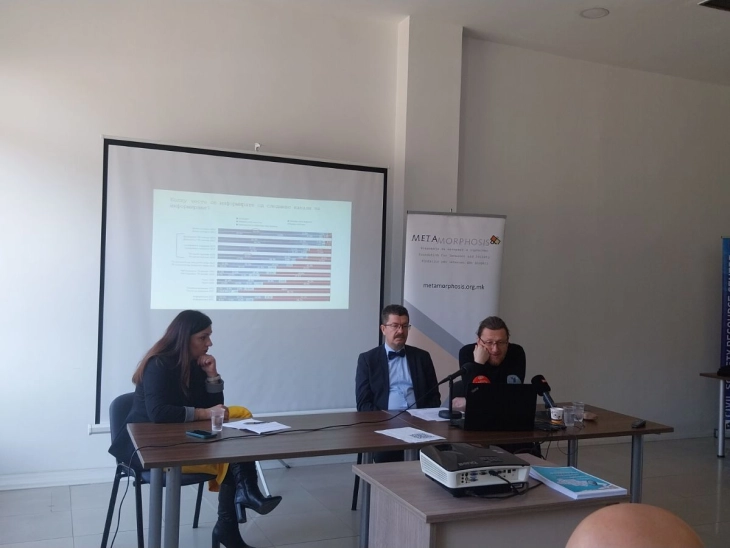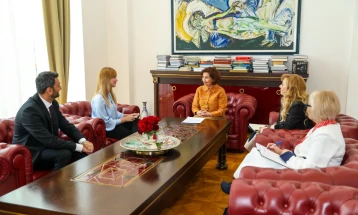Majority of citizens believe politicians and media are main source of disinformation: research
- Citizens are aware that disinformation is a big problem for the country, they understand its nature well, and consider politicians and media to be the main sources for disinformation, according to the latest research "The Effect of Disinformation and Foreign Influences on the Democratic Processes in North Macedonia in 2023" conducted by Metamorphosis Foundation.

Skopje, 23 January 2024 (MIA) - Citizens are aware that disinformation is a big problem for the country, they understand its nature well, and consider politicians and media to be the main sources for disinformation, according to the latest research "The Effect of Disinformation and Foreign Influences on the Democratic Processes in North Macedonia in 2023" conducted by Metamorphosis Foundation.
The goal was to determine the extent of exposure and the impact of disinformation on the citizens of North Macedonia by combining analyses of the characteristics of the disinformation flow with research conducted on a representative sample at the national level.
Findings show that citizens understand the nature of disinformation well and the goal of its dissemination to the media sphere. As much as 75 percent believe that disinformation fosters hate speech and divisions in society, and nearly 40 percent think that the state lacks capacities to deal with threats from disinformation and other forms of special warfare.
"Citizens believe that disinformation is primarily disseminated by politicians and journalists, i.e., the media. As much as 89 percent of citizens believe that politicians spread disinformation, while 85 percent believe that journalists or the media spread disinformation, mainly on media and internet sites," researcher Gjorgji Mitrevski said.
This year’s research also shows a shift in citizens’ attitudes towards information related to climate change. If 24 percent of citizens last year believed that climate change does not exist but was invented to control the economy, this year that percentage has increased to 36 percent.
A total of 41 percent of citizens do not believe in anti-vaccine narratives that diseases for which vaccines are administered are not serious and can be overcome with natural immunity, and 29 percent believe these narratives to be true.
While 49 percent believe that regular vaccines for children are safe, and 37 percent have no opinion on this matter.
In terms of the country's geopolitics, respondents believe that Serbia and Turkey have the most positive influence on our country. Regarding the United States, 39 percent believe that it has a positive influence, while last year it was 43 percent. Russia's influence notes a decrease to 27 percent of citizens who considered it to have a negative influence on the country, from last year's 40 percent who considered Russia to have a positive influence. And 34 percent still hold the view that Russia has a positive influence, while 38 percent report the opposite. According to respondents, Bulgaria has the most negative influence on our country, according to 78 percent. And 40 percent of respondents have no clear stance on China’s influence.
Researchers point out that a systematic approach is needed to build a culture of critical thinking, regulating internet space, raising, promoting public debates on the geopolitical context and the way disinformation spreads in order to overcome citizens' perception of disinformation. Adding that creators of public opinion should be aware that the lack of information and sustained public debate leads to information gaps; while state and public institutions, public companies and civil society organization should upgrade ethical codes.
The applied methodology allows for comparisons with the results of previous similar research, including the complementary research conducted by Metamorphosis in 2022, providing insights into trends as a basis for setting priorities, conveyed in the form of recommendations toward a whole society approach. This approach seeks solutions to the structural causes of susceptibility to disinformation. ssh/nn/
Photo: MIA







